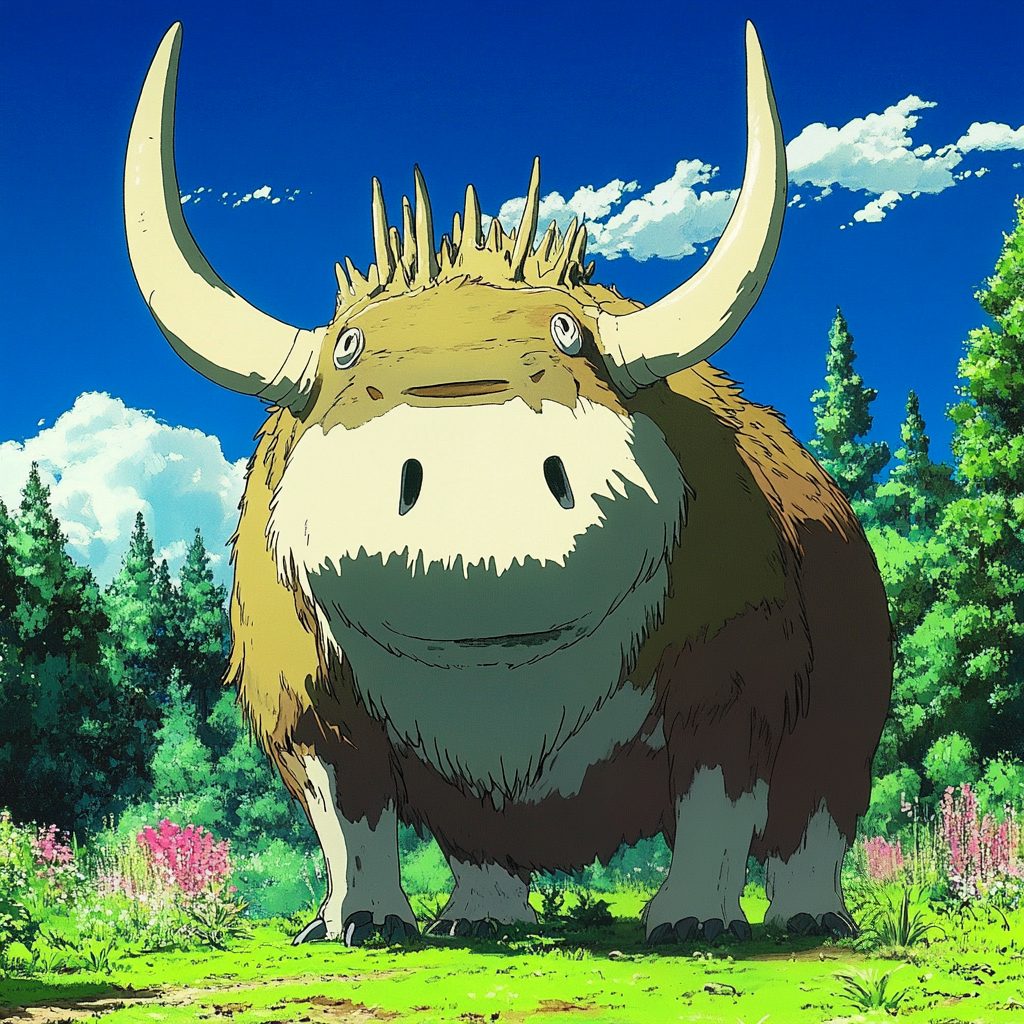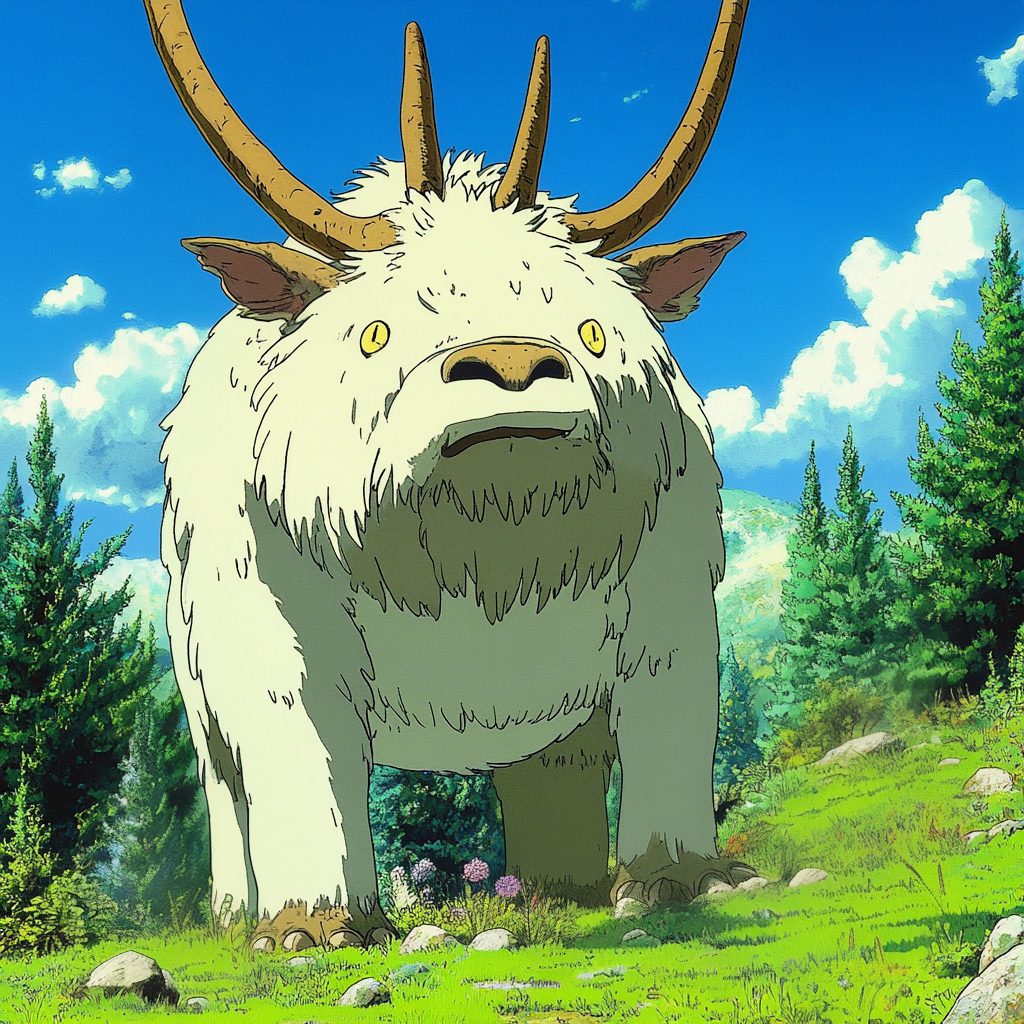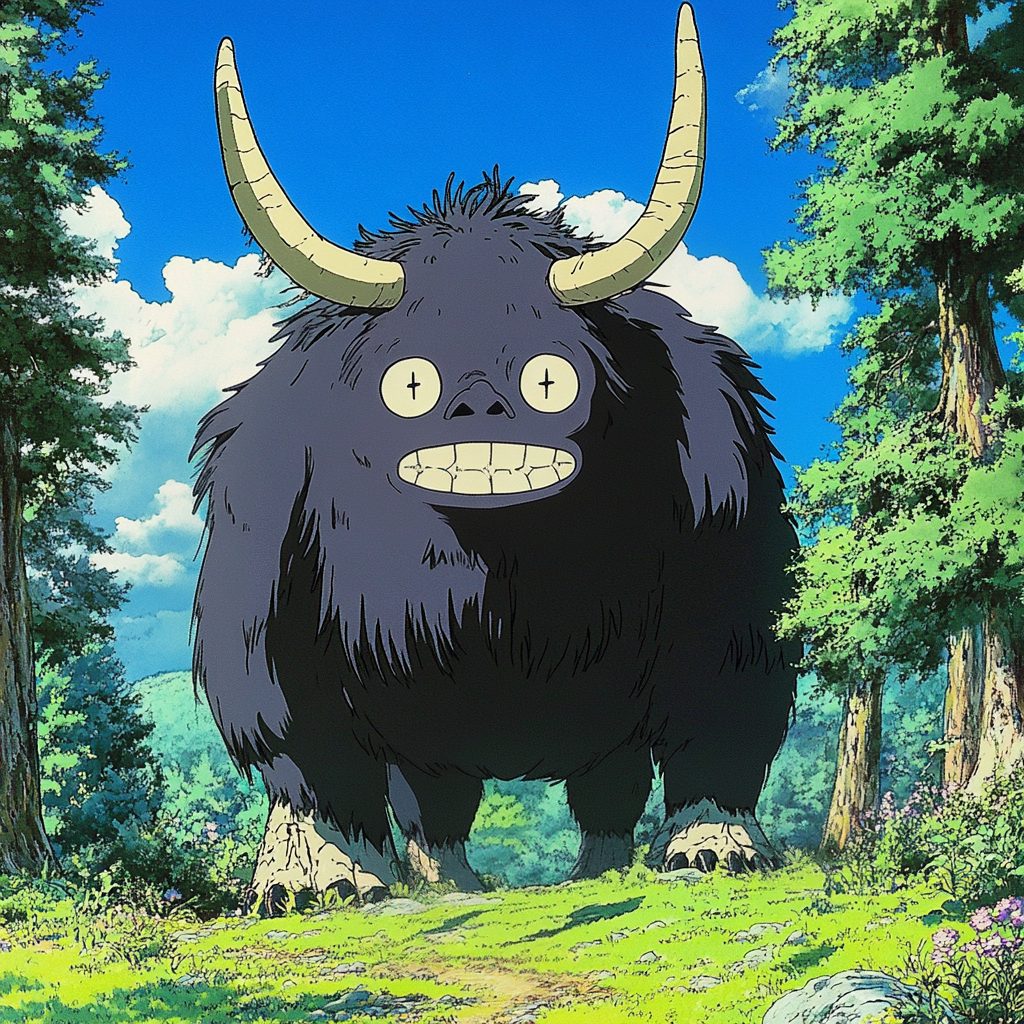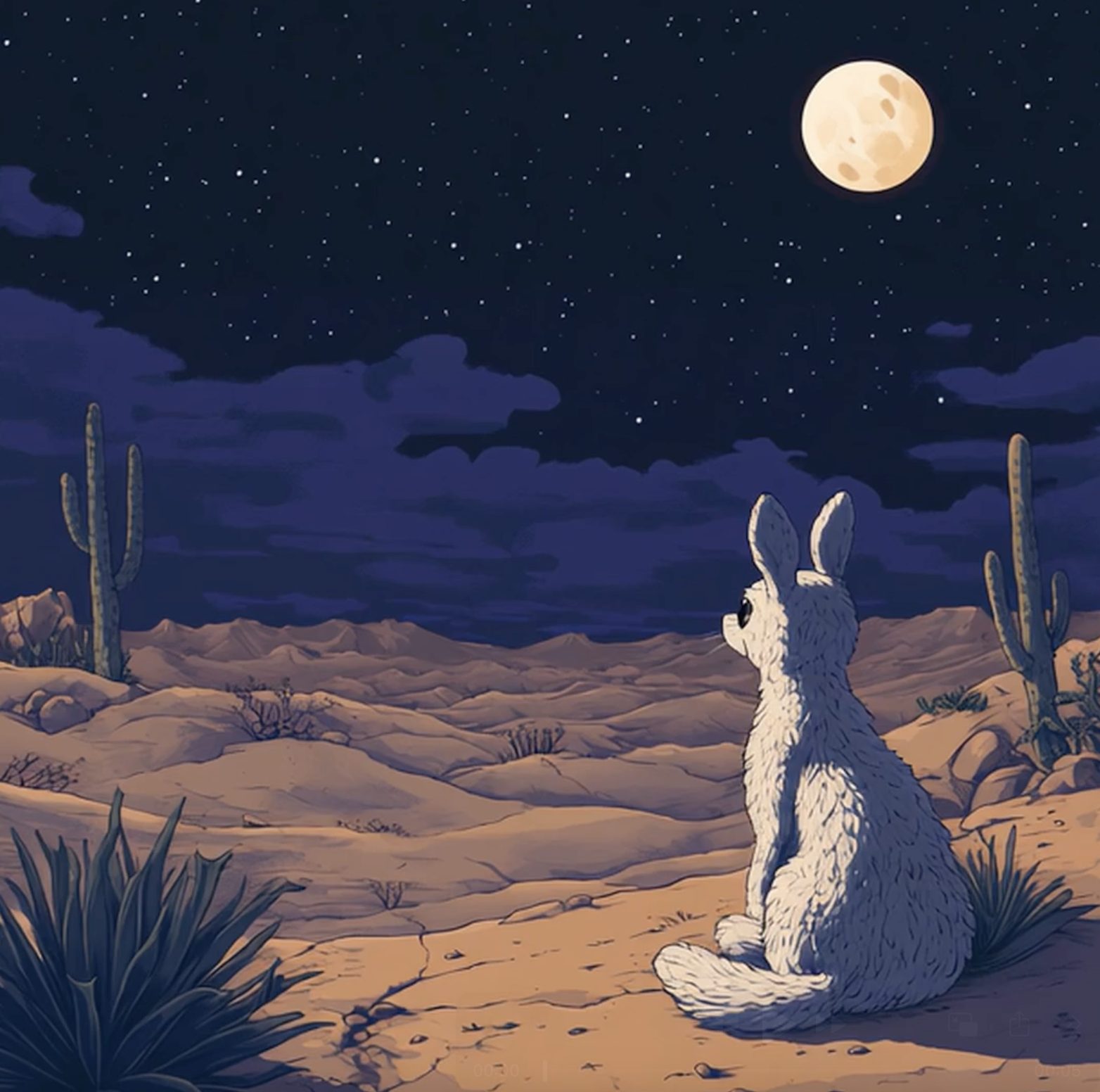In a quiet valley surrounded by forests and wildflowers, there lived a creature named Tov. He was big, soft, and slow-moving, with warm eyes and a peaceful smile. His horns curved like crescent moons, and his hooves barely made a sound when he walked.
Tov rarely spoke. Not because he couldn’t — but because he chose his words with care. He never gossiped. He never mocked. He never raised his voice, even when others did.
The other creatures of the valley didn’t understand him at first. “Why doesn’t he say what he thinks?” whispered the squirrels. “He’s hiding something,” grumbled the foxes. “Quiet ones always are.”
But Tov said nothing in return. If he heard something cruel, he let it pass like wind through trees. When asked for his opinion, he paused, thought, and answered with kindness — or not at all.
Then came the season of drought. Food grew scarce, tempers ran high, and old arguments returned like smoke. One animal blamed another. Rumors spread. Small fights turned into loud feuds.
“You hoarded berries!”
“You told lies!”
“You cursed our luck!”
Voices rose. Friendships broke. Even families turned against each other.
But Tov stayed calm. He gathered what food he could and shared it silently. When others shouted, he simply listened. And when he spoke, he reminded them:”Blame won’t fill your belly. But gentleness might fill your heart.”
At first, no one listened. But little by little, they noticed something. Tov’s words never made things worse. They never caused fear, or shame, or anger.
They made people breathe.
They made people pause. They made people remember what it felt like to feel safe. One by one, the creatures returned to him — tired of shouting, tired of hurting each other. They asked how he stayed so kind. He only smiled and said,
“You don’t have to say everything you feel. But you should always mean everything you say.”
From then on, the valley changed. Not all at once. But when the winds stirred, when anger rose, the creatures remembered Tov — the one who spoke gently, or not at all.
They remembered the verse the elders once taught but had forgotten:
“Do not go about as a talebearer among your people…”
Leviticus 19:16
Tov had lived it without ever quoting it. And because of that, they loved him.
Because his tongue was soft, his heart stayed strong, and his words, when spoken, were always a blessing.



